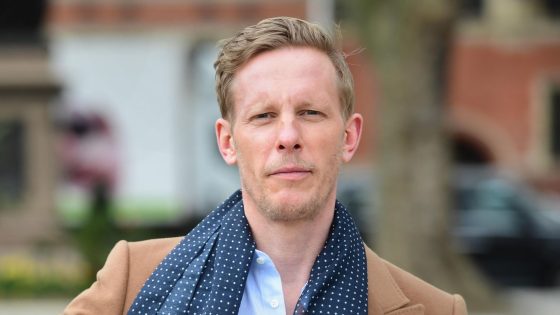Romantic dramas — and romantic comedies, for that matter — hinge on the conviction that when we find “the one” we will be all the more malleable for it. It’s not so much that we will change who we are but that who we will become alongside our lover will be a better version of who we are without them. In Marija Kavtaradze’s intimate and touching “Slow,” a budding couple put such a belief to the test, sketching out the challenges of what it means to balance the selfishness and selflessness that’s required when being in a committed relationship.
When Dovydas (Kęstutis Cicėnas) shows up at a dance studio to help interpret a lesson for a group of deaf students, Elena (Greta Grinevičiūtė) is immediately smitten. There’s something about the way his gestures and bashful demeanor make this dance instructor swoon. The instant connection she feels is mutual. Even in moments when Elena and the teenagers are working on movements and dances that require none of his involvement, he keeps eyeing the way Elena so effortlessly moves through the studio, equally loose and confident in her body. In cinematic terms, this is as intimate a meet cute as you can imagine, rooted in a kind of muted, sensual understanding of what chemistry looks like, on- and off-screen.
Soon the two are hanging out after these lessons. They’re spending quality time together, talking about their pasts and their futures, their families and their careers. They’re turning that crackling of instant connection into something else, something more solid. That is, of course, until a moment of physical intimacy in Elena’s room (the two are so close they may start kissing at any moment), is interrupted by an unprompted revelation. “I’m asexual,” Dovydas confesses with concern not for what he’s divulging but for what such a disclosure will do to his still nascent relationship with Elena. His now stiff body language, caught with care by Laurynas Bareiša’s bruisingly intimate cinematography, suggests he’s had this conversation one too many times. He’s used to fielding the very questions Elena lobs his way, some more tone-deaf than others.
In lesser hands, the conversation and dynamic that follows could risk becoming much too didactic. Asexuality, after all, remains woefully under-examined and underrepresented on screen. Desire, after all, drives so much of storytelling, with wants and wishes and yearnings, particularly in romantic tales, hewed if not outright shackled to sexual needs. To folks like Elena, and no doubt to the audience who comes to “Slow” with little knowledge of asexuality, to want someone in your life as a partner means wanting them in more lascivious ways. And to be wanted, in turn, by them in similar ways. Once Elena is confronted with the reality of what Dovydas has told her — namely that he doesn’t feel sexually attracted to anyone, that he can do without sex, that if she’ll miss such carnal needs she should probably steer clear of him — she’s racked with not so quiet doubts, especially since it’s so obvious that he cares a lot about her and wants very much to make their relationship work.
As “Slow” unfolds, Kavtaradze’s script takes you through the requisite challenges Elena and Dovydas face as they try to build a life together — one that, as Dovydas reminds Elena, necessarily has to make room for his sexual preferences, or lack thereof. At times that feels incredibly easy, like when she sees how thoughtful and caring he can be on any given day, his mere touch (like when they hold hands for the first time) making her feel whole — wanted, even, though not in the way she’s used to. At others, their rather sexless relationship feels incredibly hard, with Dovydas constantly feeling like he needs to either apologize for his lack of sexual interest in her or wildly compensate in order to satiate her needs. That back and forth, a dance in and around intimacy, structures much of “Slow” which, in the end, is a heartbreaking study of what it means to try and meet your partner where they’re at all while demanding they do the same for you.
Playing with the genre trappings of a modern-day romance, “Slow” demands we assess what those familiar beats reveal about how it is we understand such seemingly self-evident concepts like “love,” “desire” and “commitment.” It helps that with a dancer on one end and a sign language interpreter on the other, Kavtaradze’s film benefits from being rooted in a sensual rather than a sexual world. The writer-director gets her actors to embody moments of closeness that cannot be collapsed into lust, nor conceived as mere preamble for something else. Indeed, those dance numbers Elena is choreographing with her colleagues and those love songs Dovydas ends up interpreting on camera work as fitting interludes that further stress how in tune this couple is with their own bodies, and yet how their joint intimate language proves hard nevertheless to harness and make sense of.
Theirs is a love story that touches on well-worn tropes (about jealousy, commitment and the like) and yet they’re made to feel quite new. Neither dryly didactic nor neutered when it comes to its depiction of asexuality, “Slow” reveals itself to be quite a tender portrait of love and companionship, of what our bodies yearn and want in others, and how we could do well to upend the stories we tell each other about living and loving another.
Source Agencies



